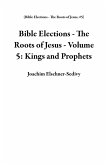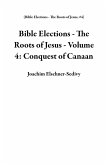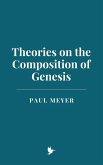The first chapters of the book lay the groundwork for understanding the early translations of the Bible, starting with the Septuagint, the Greek translation of the Hebrew Scriptures, which served as the basis for early Christian engagement with the Old Testament. It then turns to the Coptic Bible, which played a central role in the development of Christianity in Egypt, and the Armenian Bible, which marked a key cultural and theological achievement in the Christianization of Armenia. Further chapters explore the translations into Georgian, Ethiopic, and Slavic languages, examining how these translations influenced the religious, cultural, and political life of the respective communities.
As the narrative progresses, the book shifts to the influence of the Latin Bible in the Middle Ages, before diving into the Protestant Reformation and its revolutionary effect on Bible translations in languages like German and English. Key figures like Martin Luther, William Tyndale, and the creation of the King James Bible are examined in depth, showing how the Reformation led to the democratization of the Bible through translations into the vernacular, challenging religious authority and reshaping Christian worship. The English Bible's role in the English Civil War and the Commonwealth period further underscores the political importance of Bible translations in shaping national and religious identity.
In later chapters, the book turns to the rise of biblical criticism and historical analysis in the modern era, examining how Enlightenment thinking and textual criticism influenced Bible translation. The critical methods of scholars, the rise of new Bible translations like the Revised Standard Version (RSV), and the role of biblical archaeology in uncovering historical contexts are discussed, highlighting the complex ways in which the Bible has been understood and interpreted. Finally, the book reflects on the continued influence of the Bible in contemporary society, where modern translations face the challenges of secularism, globalization, and cultural diversity.
Dieser Download kann aus rechtlichen Gründen nur mit Rechnungsadresse in A, B, CY, CZ, D, DK, EW, E, FIN, F, GR, H, IRL, I, LT, L, LR, M, NL, PL, P, R, S, SLO, SK ausgeliefert werden.









